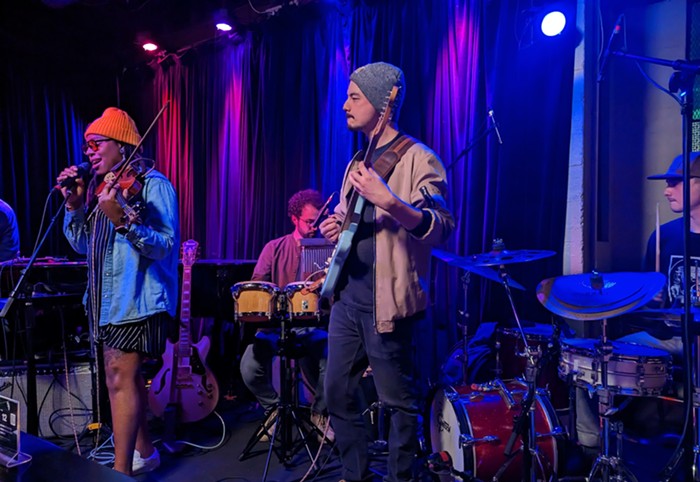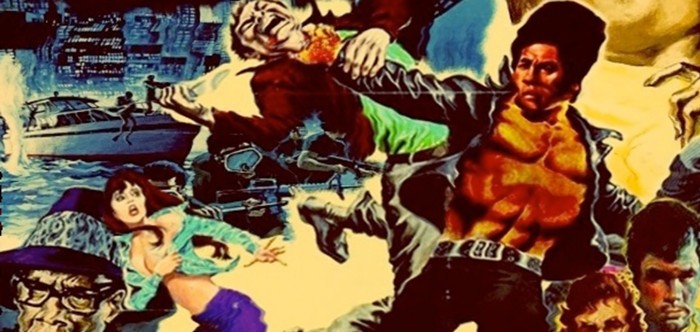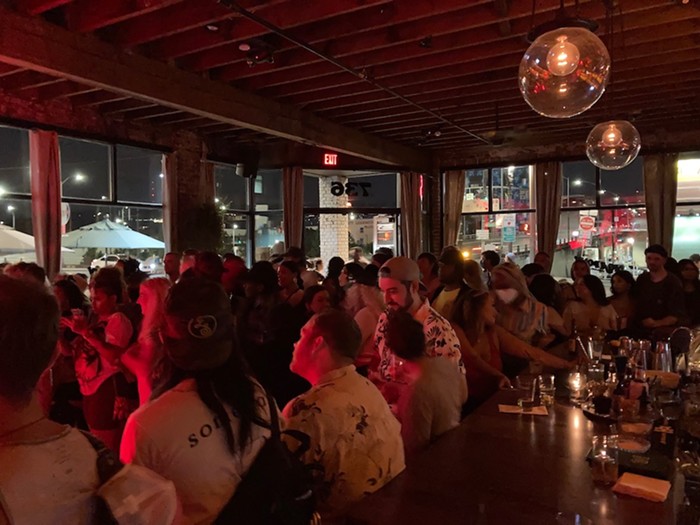"THERE WAS NEVER any kind of 'fuck you' moment in our band," Greg Dulli says. "All of our 'fuck you' moments happened before we became a band."
The band Dulli's referring to, of course, is the Afghan Whigs—the legendary Cincinnati group that became the most artistically significant non-grunge American rock band to have come of age in the '90s. The Whigs rose up through the Sub Pop ranks, rode the alternative nation wave, and garnered critical acclaim and a substantial cult following, but they never became the colossal success they deserved to be. No radio smash single, no Rolling Stone cover, no Super Bowl halftime show.
Now the band's three main members—Dulli, guitarist Rick McCollum, and bassist John Curley—have reunited following their breakup more than a decade ago. "We didn't have musical differences," says Dulli. "We were three guys who had spent a decade [together] and changed together. And we made—in 10 years, we had six records and 1,500 shows, and a lot of bad habits along the way from various people, including myself. It became a rough life that became unsustainable for all parties involved. We shook hands and wished each other well and walked away. When we split up in 2000 or whenever it was, we had split up in a Richard Burton/Elizabeth Taylor-style way more times than anyone knew about. There was always that excellent drama within the group."
The band's big breakthrough came with 1993's Gentlemen, an album that most casual Whigs listeners point to as the their peak. But the follow-up, 1996's Black Love, is not only superior, it's perhaps the finest record of the 1990s—a tangled, misunderstood noir concept album that remains the best evidence of the band's unique marriage of snarling hard rock, tightly fluid funk, soulful R&B, and cinematic storytelling. Rising out of organ swells and dissolving into a stately, repeated piano figure buttressed by railyard sounds, Black Love is gorgeous head-to-toe, a swooningly romantic record that shows remarkable growth from Gentlemen's adolescent petulance. With Dulli sounding like he's spitting blood onto the microphone with each larynx-shredding take, Black Love is an uncommon, seemingly impossible thing—a suspenseful record, from the slow-burning build of "Crime Scene Part One" to the heartbreak anthem of "Summer's Kiss" to the stop-start fatigue of the gorgeous "Step into the Light."
"Black Love was not Gentlemen 2," says Dulli, "and I think a lot of times people are looking for that kind of sequel vibe when they like something. And who knows? I've read some fair and unfair criticism of that record. That notwithstanding, in the end I stand behind it and have a great love and affection for it, and even... it sort of always felt like the misunderstood child, so I've always been very protective over it. It's weirdly sort of the one we're playing the most off of, so it's been fun to let it fly."
In the meantime, Dulli, McCollum, and Curley are enjoying the reunion shows immensely. "Honestly, I think we play better and we're nicer people now," Dulli says. "If it's possible, I just think we're... I think it's maybe the best version of the group because of playing ability and get-along-ability. It's pretty good. We've turned into a—not that I had any doubt, but we're pretty deadly right now."
Whatever factors contributed to the Afghan Whigs' initial breakup are part and parcel of the long-term friendship and collaboration that fuel the band's engine. "It was really a whole lot of factors, and mostly just scorched-earth policy, you know. We just kind of burnt the landscape to the ground and had to walk away. John had a baby; he wasn't going on tour. Rick fell in love; he wasn't going on tour. I had gone insane; I wasn't going on tour. Everyone back to your respective corners until further notice!" says Dulli. "And this is the further notice tour."



















